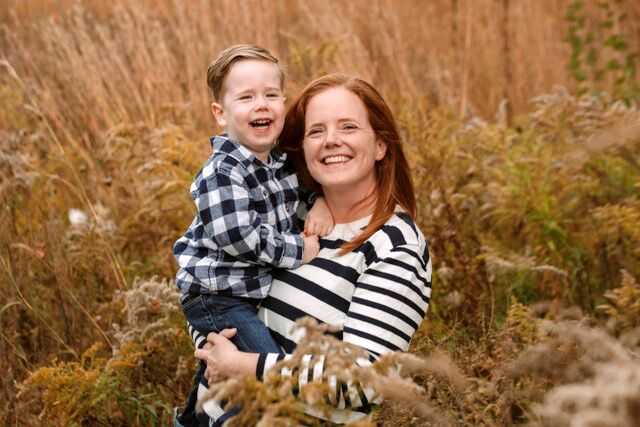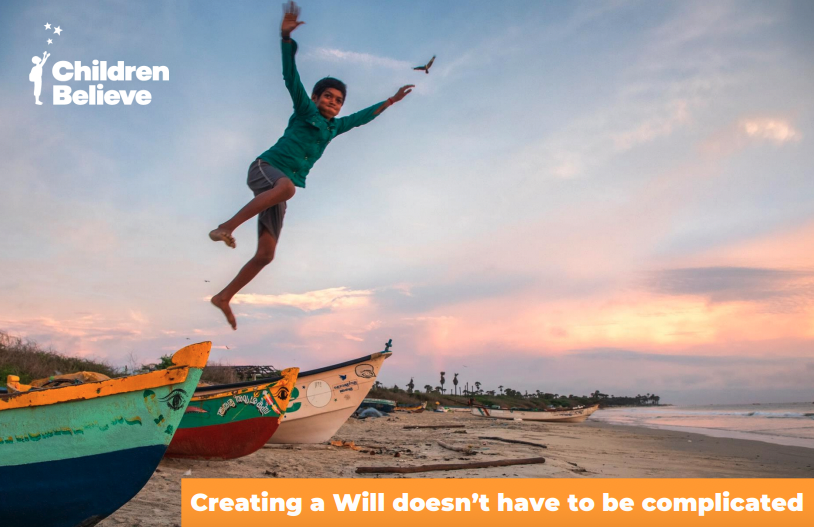This environmental charity snagged $3.5 million in new legacy gifts through an online will campaign. Could your charity do it too?
Why It Matters
Just eight per cent of Canadians report leaving a gift to charity in their will. A group of charities is trying to increase that figure by promoting online wills.

Just a few days after launching their online will campaign, Jackie Mersereau knew they were onto something.
From her home office in Toronto, the director of planned giving for the Nature Conservancy of Canada watched with delight as email notifications rolled in, alerting her each time a donor pledged a gift to the charity in their newly minted online will.
“I joked that I was going to go to Mexico,” said Mersereau during a presentation about their campaign at the Canadian Association of Gift Planners conference in April.
“The [return on investment] was almost immediate for us.”
The country’s largest land conservation charity is not new to fundraising for so-called legacy gifts. Each year, more than 150 people put the charity in their will.
But promoting online wills—a will a donor completes digitally and then prints out for signing—was still a novelty.
New technology aims to make will creation easier
A new crop of online will companies, including Epilogue, Willful, and Willfora, which promise to make will creation easier and cheaper, has made the NCC’s campaign and others like it possible.
Nationwide, just half of Canadian adults have a will. Of those that do, just 8 per cent report leaving a gift to charity.
In a 2023 Angus Ried poll, cost was the third most-cited reason for not having a will. Getting an estate lawyer to draft a will can set you back more than $1,000.
Charities offering free or discounted wills can help alleviate this barrier.
Wealthy Canadians already likely have a will, said Mersereau. “What we’re doing is we’re making wills accessible to everybody.”
Online wills are also helping to increase donations left in wills because, unlike lawyers, they always ask whether a client wants to leave a gift, said Laurie Fox, director of Will Power, a CAGP campaign to boost legacy giving.
People are open to putting charity in their wills, but they don’t tend to think of it on their own, she said.
When completing an online will with one of the major providers, a user is asked to answer a few dozen questions—the number of kids and pets they have, for instance—and whether they’d like to leave a gift to charity.
Among the thousands of users who have created a will with Epilogue, about 12 per cent have left a gift — four per cent higher than the reported national average.
“The sheer fact that we asked every single person who comes through [the platform] if they want to give to charity, I think, increases the likelihood that somebody’s gonna say yes,” said Daniel Goldgut, the company’s co-founder.
The platform’s data also suggests by proactively promoting online wills, charities can boost this rate further.
When a customer comes to the Epilogue platform through charity promotion, the share of users who donate to charity jumps to about 36 per cent, Goldgut said.
Online will campaigns raise millions
NCC’s online will campaign began in March 2023, with an email sent to about 2,500 supporters who had previously expressed interest in legacy giving.
The email, headed by a photo of a pack of cuddly brown bears, told supporters how valuable legacy gifts are to NCC and offered the chance to create a free will via Willfora.
When a donor clicked through, Willfora’s charitable giving page included a specific question about whether the user would like to leave a gift to NCC.
Within a few weeks of that first blast, seven or eight donors had created an online will and pledged a gift to the charity.
“It was amazing,” said Mersereau, who watched the gifts come through in real-time through a digital Willfora dashboard.
About six months later, the charity followed up with a second email to about 7,000 donors to keep the momentum going, netting an additional handful of pledges.
Since their campaign launch, the charity has also added messaging about the chance to create a free online will in other communications, such as a once-a-year magazine and a direct mail campaign, with continued pickup from donors.
These efforts have netted 26 legacy gift pledges, totalling about $3.5 million in prospective funds.
The smallest bequest made by a donor using the platform has been for about $1,000, and the largest is close to $1 million, said Mersereau.
Other charities have also found success.

Development charity snags more than 30 gifts
Since launching their online will campaign, international development charity Children Believe has seen more than 30 donors pledge a gift to the charity in their will, totalling more than $2 million in potential gifts.
The charity’s online will campaign began with a postcard, followed by an email, and, like NCC, ads in their charity’s print magazine.
In the legacy marketing field, it’s often said that focusing on donors nearing retirement will lead to your quickest wins, said Christina Beeston, the charity’s manager of legacy giving.
“But I really believe [when you get] into the hearts of people early…they have so much potential in their lives to increase that gift,” she said.
Donors who have left the charity legacy gifts have ranged in age from late 20s to mid-70s.
Covenant House Vancouver, a youth homelessness charity, has also partnered with Willfora. Since the launch of their campaign, ten supporters have made new legacy gift pledges through Willfora wills, with an estimated future donation value of about $1 million.
The price of partnering with an online will provider varies depending on the size of the charity. The annual fee is between $2,500 and $7,000 for charities that partner with Epilogue on a campaign.
Celia Campos, Covenant House Vancouver’s manager of legacy giving, said the company’s partnership with Willfora has been well worth the money.
“The amount of revenue that comes in by far outweighs what we’re spending,” she said.

You get out what you put in
But charities launching an online will strategy shouldn’t expect gifts to fall from the sky instantly, said Denise Fernandes, executive director of planned giving at Diabetes Canada.
“You’re going to get [out of it] what you put into it,” she said.
Working with Willfora, the charity that advances diabetes research, advocacy, and education, has netted 13 pledges with an estimated future value of about $2.3 million.
Mersereau agreed: “It’s not a plug-and-play scenario here. Work has to be done. You still have to follow up with your donors.”
With hindsight, Mersereau said if she had the chance to relaunch her campaign, she would have communicated with donors more frequently about the potential to create an online will.
She would also have sent marketing assets more closely on the heels of one another—an email about the opportunity about a month after a general legacy giving direct mail letter, for instance, she added.
Charities that have an existing legacy giving program are also more likely to find success with promoting online wills, said Fox.
“If you’ve never educated them about giving gifts in wills before, they’ll be like, ‘Why the hell are you sending this to me?’” she said.
Be cautious about ‘undue influence’
For those keen to launch an online will campaign, Fox also encouraged treading thoughtfully.
There is a debate in the charitable sector about free will campaigns, with some believing they subtly influence someone to leave a gift to the organization, she said.
NCC is aware of this concern and is careful with how they position their marketing, Mersereau said.
She added that whereas a regular appeal might say, “Support NCC today,” an online will appeal could encourage the donor to “consider” contributing to the organization in their will.
The charity’s communications also state that donors are not under any obligation to leave a gift to the charity, even if they create a free will through Willfora’s platform.
Fox also recommended that charities provide donors with multiple will providers, including online and offline options, to help minimize the perception of undue influence.
In addition to Willfora, the NCC has also partnered with Willful, which offers French-language wills. This allows the charity to provide a service to supporters in Quebec.
Fox also recommends stressing to donors that online wills are only suitable for simple estates. A lawyer is required where there is a blended family, trusts, or other complexities, she added.
‘Nature is the answer’
About a decade ago, a senior leader at the NCC championed legacy giving and got board buy-in for an expanded program.
As those donors begin to pass away, their legacy gifts are being realized, supporting the charity in its work across Canada to advance nature-based solutions to climate change, Mersereau said.
Their work today to promote online wills is in much the same spirit — and comes at a time when the stakes for the climate have never been higher.
“The answer is nature. If you let nature do what she intends to do and what she needs to do, then we can start to mitigate some of the damage that’s been done,” she said.
“Wills give a donor the power and the ability to dream of what they can do…They’re realizing gifts that are benefitting their children, their grandchildren and future generations.”
